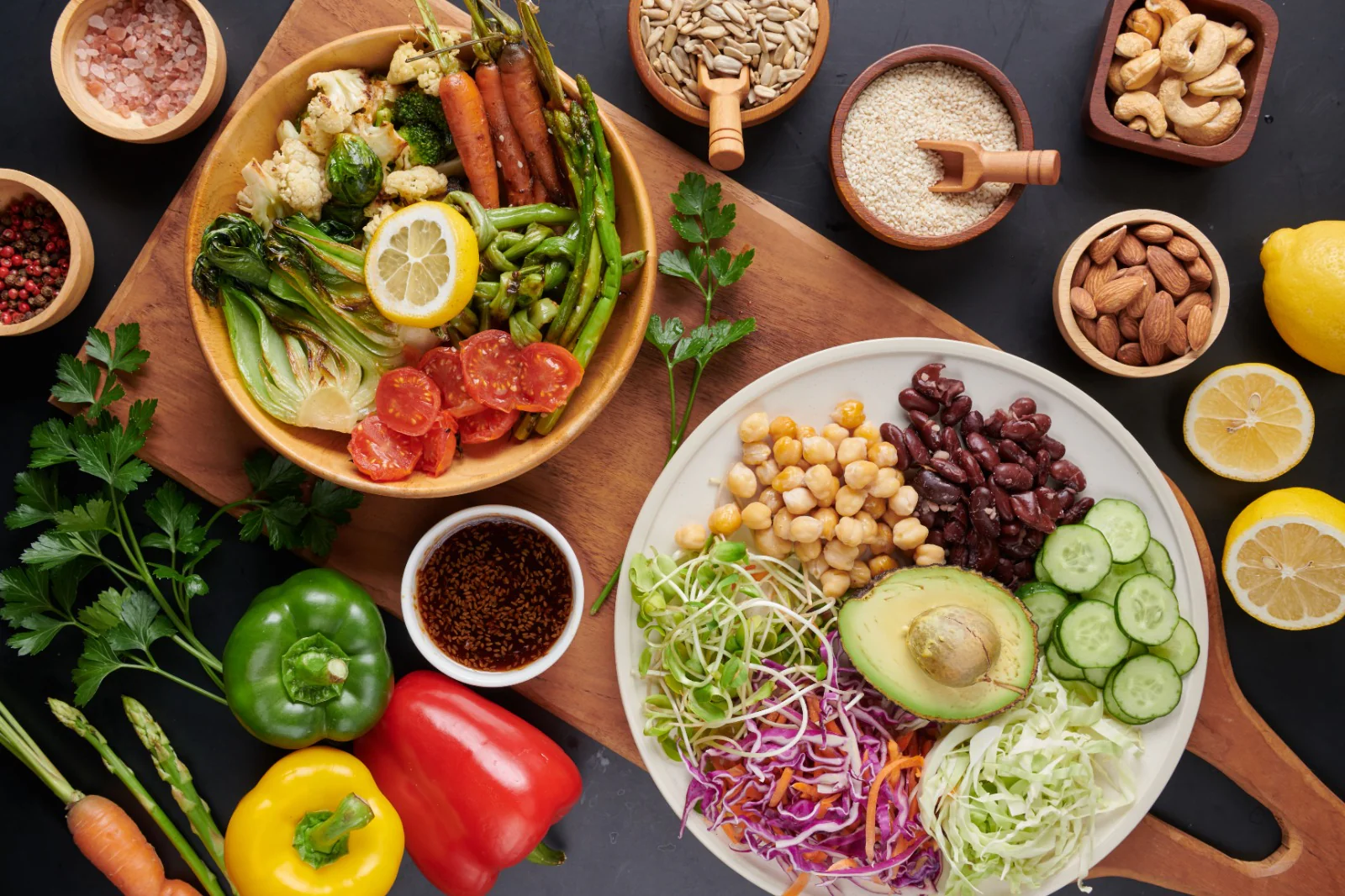
In a world full of convenience foods, sugary drinks, and ready-made meals, we often forget that our food is the most important part of our health. Whole foods, sourced from nature and minimally processed, are the cornerstone of a healthy diet and long-term well-being. They provide the body with essential nutrients, aid digestion, and promote overall well-being in ways no pill or ready-made meal can match.
Whole foods offer many powerful ways to help you stay healthy every day. They can give you more energy, help you focus, and maintain balance in your life.
What does “whole food” mean?
Whole foods are foods that are as close to their original state as possible. They are unprocessed, unsweetened, and unsweetened. Examples include fresh fruits and vegetables, whole grains, nuts, seeds, legumes, lean meats, and natural cheeses.
Whole foods retain their complete nutritional value, while processed foods often contain added sugars, harmful fats, and chemicals. The vitamins, minerals, enzymes, and fiber in food are substances the body can use for energy and to repair itself.
When you base your diet on whole foods, you not only provide your body with the nutrients it needs to survive, but you also help it grow.
Naturally balanced and nutrient-rich
A major advantage of whole foods is their high nutrient density. In other words, they contain more minerals per calorie than processed foods. An apple, for example, not only fills you up but also provides fiber, vitamin C, potassium, and enzymes. Sugary snacks, on the other hand, can make you feel good for a while but then leave you feeling tired.
Furthermore, the nutrients in whole foods remain in their natural form, which is how the body processes them. The fiber in vegetables, for example, helps the body absorb sugars more slowly, preventing a rapid rise in blood sugar. Similarly, the natural fat in nuts helps the body absorb vitamins. This balance ensures that the body can digest food and utilize nutrients efficiently.
Reduces gas and improves gut health
Whole foods are crucial for a healthy digestive system because they are the core of good health. Processed foods can disrupt the gut, leading to problems like gas, bloating, and bloating. Whole foods, on the other hand, promote digestion through their natural fiber content.
A healthy microbiome consists of beneficial bacteria in your gut that thrive on fruits, vegetables, legumes, and whole grains. Maintaining a balanced gut flora is crucial for improved mood, immune system support, and increased food intake. When your gut is functioning well, every part of your body, from your energy to your mind, feels better.
If you feel heavy and sluggish after eating junk food, but light and alert after a fresh salad or fruit, your body is telling you that whole foods are good for you.
Increases energy and focus
Processed foods often provide an energy boost but disappear quickly, leaving you tired and unable to concentrate. Unlike processed foods, whole foods provide consistent energy throughout the day. This is because they release glucose slowly, preventing a rapid drop in blood sugar.
For example, oatmeal with nuts and fruit for breakfast helps you stay full and alert longer than a high-sugar cereal. Eating homemade meals with fresh vegetables instead of fast food can also help you concentrate and prevent afternoon fatigue.
Whole foods also contain important nutrients, such as iron, calcium, and B vitamins, which are necessary for brain function and energy expenditure.
Helps keep your immune system strong
The food you eat has a significant impact on your immune system. Whole foods are rich in vitamins, minerals, and antioxidants. These help keep your body healthy and free from inflammation and disease.
Citrus fruits, for example, are rich in vitamin C, which supports a healthy nervous system. Leafy greens like spinach and kale are rich in iron and folate, which are good for the blood. Nuts and seeds, on the other hand, are rich in zinc and vitamin E, which aid in cell repair.
When you eat a varied, nutrient-rich, unprocessed diet, your body naturally becomes stronger and more resilient to stress, fatigue, and illness. This helps you stay healthy and strong all year round.
Weight Loss and a Healthy Metabolism
Because unprocessed foods are rich in fiber and water, they naturally fill you up. Reducing calories isn’t easy; healthy eating is essential. Whole foods are healthier than processed foods because they provide the nutrients your body needs without empty calories.
Eliminating the Risk of Chronic Disease
Many processed foods, unnatural sugars, and unhealthy fats are linked to a number of chronic conditions, such as heart disease, diabetes, and certain cancers. Whole foods, on the other hand, can naturally protect against these conditions.
Foods rich in antioxidants protect cells from free radical damage. Eating whole grains can lower cholesterol and reduce inflammation. Nuts, bananas, olive oil, and other healthy fats are good for your heart and brain.
By making whole foods a central part of your diet, you’ll not only look and feel better but also maintain your health and improve your quality of life.
Simple Foods and Mindful Eating
An often-overlooked benefit of eating whole foods is that they reconnect you with your natural eating habits. When you cook your own meals, choose fresh ingredients, and savor the flavors of real food, you’ll appreciate the food you eat more.
Eating whole foods encourages you to savor, chew each bite thoroughly, and enjoy the process, which naturally fills you up and promotes digestion. You’ll stop striving for an easy life and prioritize food and self-care.
Eating whole foods isn’t just a trend; it’s a lifestyle that shows you care about your health and the environment.
Frequently Asked Questions
How can I easily start eating more whole foods?
Start by replacing one processed food with a whole food each day. For example, replace sugary breakfast cereals with oats, or chips with nuts and vegetables.
Do frozen fruits and vegetables count as whole foods?
Yes, as long as they don’t have added sauces, sugar, or salt. Frozen products often retain their nutrients better than fresh products that have been stored for a long time.
How much does it cost to eat whole foods?
Of course. Buy seasonal ingredients and source them from local stores. Simple staples like rice, beans, and lentils are inexpensive and nutritious.
Question 4: Should I avoid all prepared meals?
Not always. A balanced diet is important. For flexibility and longevity, aim for 80% whole foods and 20% artificial snacks.
How long does it take to see results from eating whole foods?
After a few days or weeks, you may experience more energy, a better appetite, and an increased sense of well-being. Long-term benefits include a stronger immune system and a reduced risk of serious illness.
In short
If you want to eat healthy, whole foods are the best choice. They provide your body with the nutrients it needs, ensure steady energy levels, and strengthen your brain and nervous system. Choosing whole foods over processed foods doesn’t require perfection. You just need to be aware of the difference and make better choices step by step.
When you prioritize real, unprocessed food, you’re not just eating to survive; you’re eating to thrive. Your body, mind, and soul will be healthier and more vital for a long time, something no processed food can replace.





